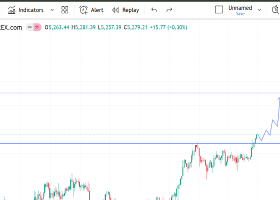If you’re an elite person looking for an elite career, you will probably have considered a career in investment banking. But you may also have weighed-up a career in strategy consulting. Banking and strategy consulting both pay well. They are both are pitched at exceptionally high academic achievers, (or at “insecure, deeply left-brain, hyper-intellectual, OCD over-achievers,” in the words of one ex-McKinsey director). And they both offer the glamour of interacting with key players in the global economy. But which is right for you?
Banking vs. consulting: The Pay
Pay really shouldn’t be your main motivation for selecting a career. But if you’re a little bit interested in how much you’re likely to earn in banking vs. consulting, then look at the figures below.
Data from Wall Street Oasis, the online community for investment bankers, suggest that pay at top strategy consulting firms looks like this as you climb the ranks:
Analysts: $69k
Associates: $81.5k
Consultants: $105.6k
Managers: $155.1k
Principal/partners: $319.8k
By comparison, Wall Street Oasis thinks pay for people in front office banking jobs looks more like this:
First year analyst: $80.4k
Second year analyst: $103k
Third year analyst: $108k
First year associate: $113k
Second year associate: $124k
Third year associate: $160k
Vice president: $294k
Managing director: $624k
In other words, you’ll earn more in banking. You may even earn a lot more in banking – our research suggests that Wall Street Oasis’s pay figures might actually be a little low.
However, one ex-McKinsey consultant who now works in investment banking says that if you play a long game in consulting, you’re likely to come out on top of the bankers. Sure – in the first ten years of your consulting career, he says you’d almost certainly earn more in banking. “But once you reach MD-level in an investment bank, compensation starts to plateau,” he tells us. “In banking, you can be subject to volatility, both from the market and personal performance. Meanwhile, consultants are on a consistent trend upwards.” While banking pay is plateauing, he says compensation at places like McKinsey only really kicks in at the senior partner level: “Take median compensation 15-20 year veterans, and I bet consultants at McKinsey or BCG would come out on top of bankers.” This may be true: senior partners in consulting firms earn $1m+.
Conclusion: Banking pays better from the outset. Consulting is a slow burn – plays well if you’re in it for the long term
Banking vs. consulting: The Job Security
This brings us to the second point: job security. Your chances of having a 15-20 year career in consulting look a lot higher than your chances of having a 15-20 year career in banking.
Take McKinsey & Co. Between 1994 and 2001, it went from 3,300 consultants globally to 7,700. Now it has 9,000+ consultants and 17,000+ staff in total. In other words, consulting headcount seems to rise – and to stay that way.
By comparison, banking headcount has a tendency to rise and fall. Between 2000 and 2007, headcount in the City of London increased by more than 10% according to the CEBR. Since then, banking headcount has fallen around 35% and banks are still under pressure to cut costs (and headcount) as revenues drop (in fixed income sales and trading) and regulatory pressure increases. Guess who helps banks deal with cost and regulatory pressures? That’s right, consultants. Even when banking jobs are being cut, consultants still have plenty to get on with.
Conclusion: Your future looks more secure in consulting.
Banking vs. consulting: The Hours
The hours you work in banking will depend upon the area you go into. If you go into sales and trading you can expect very early mornings but clearly defined ends to your day as markets close. If you go into IBD (M&A or capital markets), the hours are much more protean: 100 hour working weeks are not unheard of, non-banking friends tend to fade away as weekends and holidays are consumed by the demands of the job.
The hours are tough in consulting too. Don’t forget that if you work as a consultant you can spend your weeks ‘on the road’ (see below), miles away from home. The ex-consultant we spoke to said weeknights are often a killer in consulting jobs – you’re lucky to get in by 10pm. Unlike IBD, however, work rarely impinges upon the weekend.
Banks are trying to address the hours issue. Credit Suisse, Bank of America, Goldman Sachs and JPMorgan are among those to have introduced policies ensuring that IBD bankers get some weekend time off every month. They’re also taking on more juniors so that the people they do hire don’t have to work so hard. Bank of America, for example, is said to have hired 40% more analysts and associates in 2014 than it did the year before.
Consultancy firms are alert to the hours issue too. Boston Consulting Group has been implementing a policy known as ‘Predictable Time Off’ for the past five years. Under this policy, consultants at the firm are assigned ‘predictable periods’ of downtime at the start of a project. During these periods, BCG consultants are required to be off completely – they mustn’t check their email and they mustn’t check their voicemail. Meanwhile, McKinsey & Co introduced flexible work programmes in 2012 (as detailed in this report) - employees there can now take blocks of unpaid leave between projects, work three or four days a week, or take a leave of absence for up to a year.
Conclusion: If you want your weekends, try consulting or trading. If you want your weeknights at home and can tolerate early mornings, try trading. If you don’t mind spending all week away, try consulting. If you want to work all day and all night and some weekends, but to sleep in your own bed, try IBD.
Banking vs. consulting: The Lifestyle
The big downer about consulting, is the lifestyle. If you work in banking you’ll commute in and out of your office on Wall Street, in New Jersey, or in the City of London every day. Yes, you might have to do a lot of travelling if you’re in a senior client-facing position, but if you’re a junior M&A banker or a trader you’ll mostly be glued to your screen at the mother-ship.
By comparison, if you work in consulting the travel is immediate. And it’s relentless. The ‘McKinsey Client Model’ involves, ‘Monday to Thursday at the client site and Fridays in your home office,” according to one McKinsey employee. That client office could be nearby, or it could be hundreds of miles away. If it’s hundreds of miles away, you’ll spend your weeknights in a faceless hotel. “The travel is a killer – you’re on the road non-stop unless you get a plush home city assignment,” says the ex-McKinsey consultant who now works in banking.
Conclusion: The consulting lifestyle is dire – unless you like living in mid-range hotels on the periphery of major cities.
Banking vs. consulting: The Work Itself
How about the work itself? Junior bankers may spend their lives creating financial models and pitchbooks, but consultants spend their time creating diagrammatic models and Powerpoint presentations, so it’s not so different really. In theory, life as a consultant should be more fulfilling as consultants actually get to implement the recommendations they make, but one ‘executive transitioner’ who works with consultants moving into other industries says consultants get frustrated with the endless presentations and limited opportunities put their ideas into practice (a bit like junior bankers who put together endless pitchbooks for M&A deals that never happened). For this reason, he says they often move out of consulting and into management roles in industry instead.
The ex-McKinsey consultant-turned banker says life in consulting can be interesting due to the sheer variety of projects. On the other hand, the executive transitioner says some junior consultants get staffed across a broad range of projects managed by a range of different partners just to keep them interested, and that this can be come a struggle in itself.
Conclusion: If you want fast-paced interaction with the global economy, try sales or trading. If you like building detailed Excel models of a companies’ cash flow at 3am, try M&A. If you like putting together matrix diagrams and Powerpoint presentations whilst living in hotels, try consulting.
Banking vs. consulting: The Afterlife
What happens when you figure you don’t want to work in banking or consulting any more?
If you’ve worked in sales or trading in a bank, the ‘transition’ can be hard. If you’re good, you can always become a trader for a hedge fund. If you’re less good, you can always move into compliance or maybe risk. If you’ve worked in equity research or sales, you can always go into investor relations or PR. If you’ve worked in M&A or debt capital markets and you’re exceptional, you can move into private equity, or you can move into a company’s in-house strategic advisory team.
If you’ve worked in consulting, by comparison, you can always move into banking (banks hire consultants to offer strategic advice internally) – however this assumes you’ve worked with financial services clients. James Gorman, chief executive of Morgan Stanley is a former McKinsey consultant, for example. Alternatively, you can always move into any other industry you’ve consulted in. People move out of consulting and into industry all the time – and then they move back again. The consulting sector is famous for it.



